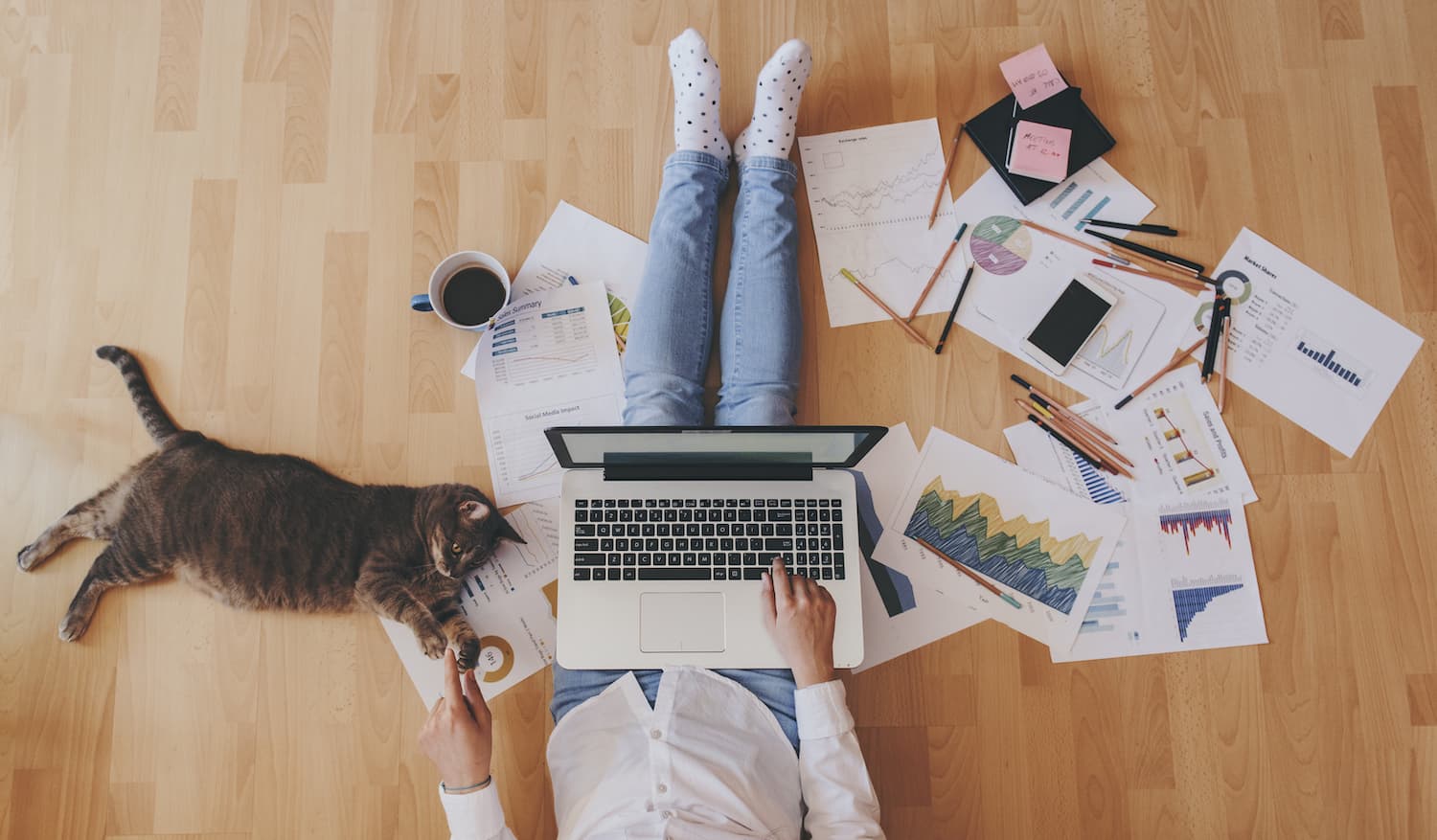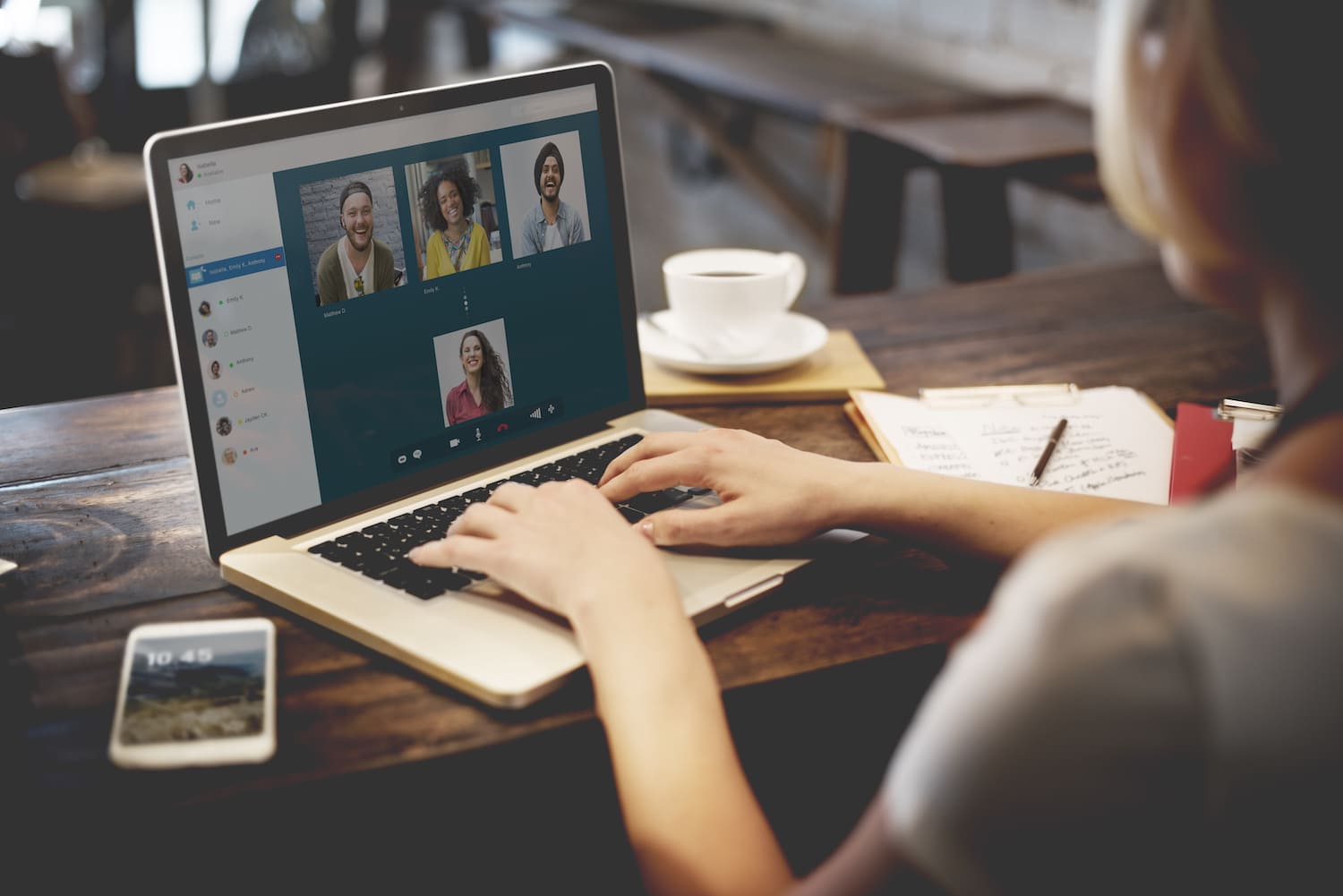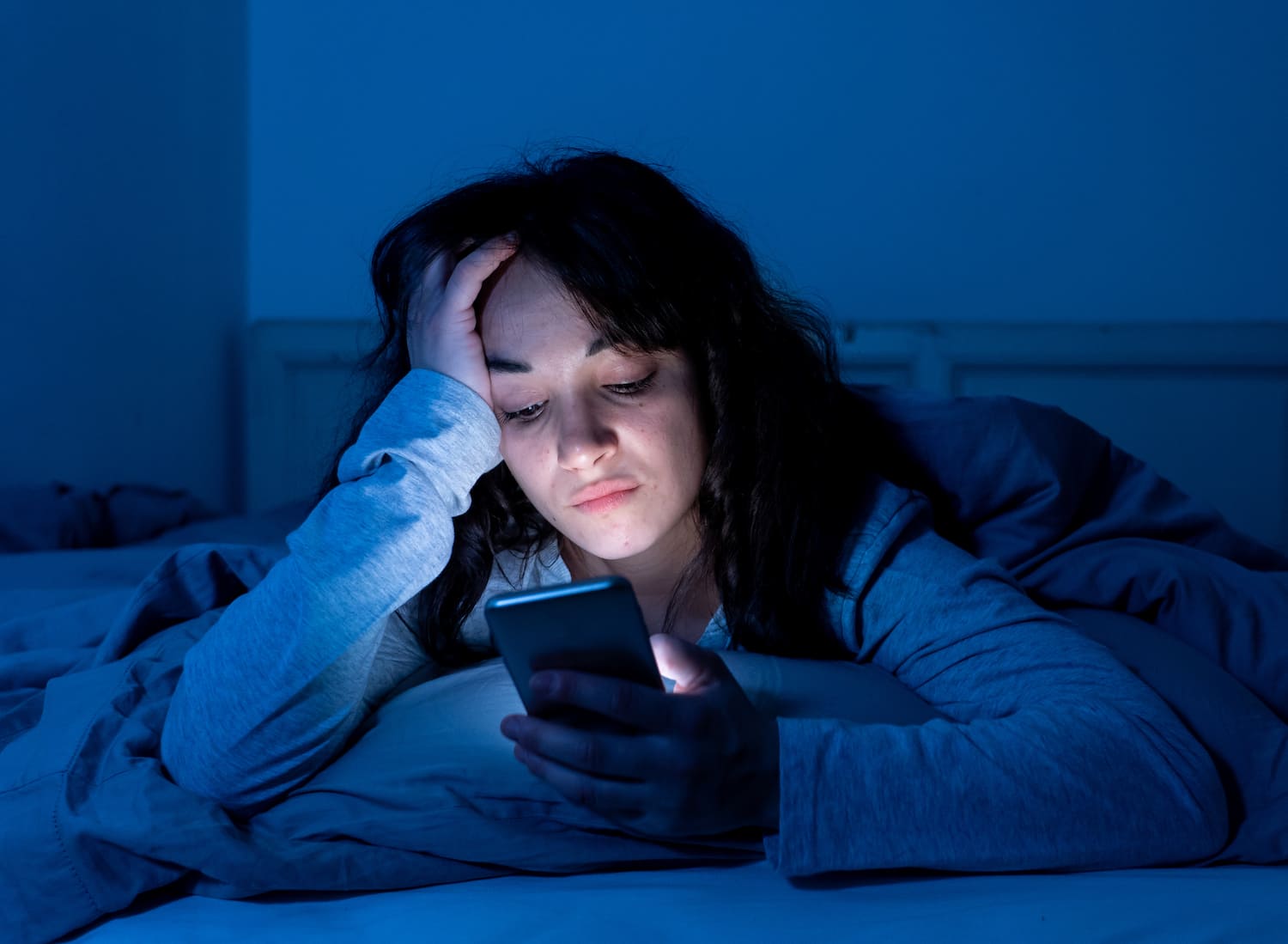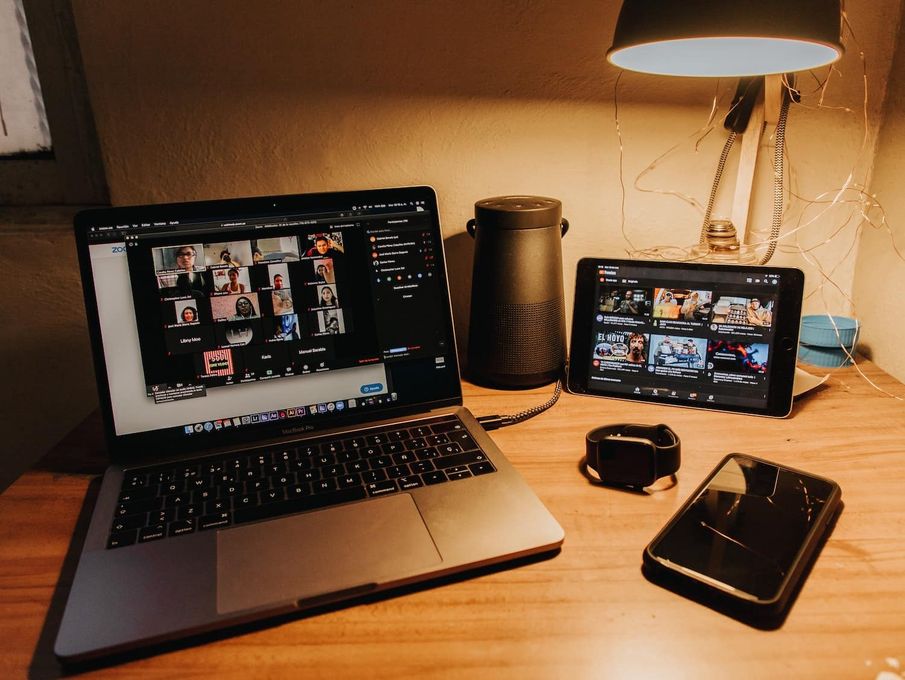Are you feeling technologically drained by the COVID-19 lockdown? You’re not alone
The Coronavirus epidemic has got us more physically distanced from one another than we’ve ever been. But, thanks to the marvels of technology, we’re still able to feel connected with our loved ones, even when we can’t be physically present.
I’m sure that, like me, your screen time will have increased exponentially over the past few weeks; I for one have never had so many WhatsApp notifications in all my life. Yes, what used to be boardroom meetings are now Slack video calls, and Friday night drinks have turned into House Party sessions or Zoom pub quizzes.
And it’s wonderful, it really is, that we’re able to keep in touch with one another, even in these strange times. Especially so with vulnerable loved ones who are having to quarantine for the recommended 12 weeks.
But, surely I’m not the only person who’s beginning to get a bit worn down by all of these virtual meet-ups?
I’ve thought really long and hard about how to write this article (whether I should write it, even) because it does feel like I’m teetering on dangerous territory. I recognise that for many people, in this time of uncertainty, reaching out and feeling connected is essential for maintaining a sense of wellbeing, a lifeline even. But, I’ve just had a request for another virtual pub quiz this weekend, and it feels like the final straw. Can you relate?

What is the impact of screen time on our mental health?
Although the physical effects of screen time are well-documented – eye strain, blue light’s impact on our sleep, reward-seeking behaviours, and so on – when it comes to how screens affect our sense of wellbeing, the jury’s out. Some people find that being connected online benefits their mental health, whilst others very much oppose it.
Maybe the problem, then, is whether it is a choice to spend time online, or not.
As a caveat, I am so grateful that I am still able to work during this epidemic – I’m not taking that for granted in the slightest. But, other than the fact that I’m working from home (from my dining room table), as opposed to Happiful’s open-plan office, my days are still running on a nine to five schedule.
And, after staring at a screen all day, sometimes involving multiple conference calls, the last thing I want to be doing is staring at another screen. My grandmother used to tell me as a kid that if I watched any more TV I’d go ‘square-eyed’ and, do you know what, I’m starting to think she was onto something.
I’m feeling technologically overwhelmed and emotionally drained by it all. And, what really puts the cherry on top of the cake is that I’m feeling guilty about it.
But, the problem is there’s no escape. How can you say no when your loved ones ask you to FaceTime, House Party, or Zoom? You can’t say you’re busy because, the truth is, you’re not. You can’t say you want to spend time with the other people you’re quarantined with because you’re in each other’s company all day as it is. And you can’t just ignore your friends or family members who are in lockdown, bored, with nothing to do all day. So, what’s the solution here?
NLP Master Coach and trainer Rebecca Lockwood agrees that it’s a difficult situation. “I usually recommend people to stay away from social media and the news but, with the current circumstances, it’s been hard to move away from life online. Supporting my children’s learning on the computer and tablet, helping my clients on our Facebook channel, and the WhatsApp group we have to chat with friends and family to make sure everyone is doing OK – at times it’s felt very overwhelming.
“But then I remember that I need to tap back into feelings of gratitude for being able to access these things to help others and myself when we are in need.”
So perhaps the issue is more with how we perceive these technological events in our lives, rather than their occurrence per se. And by this, I mean that we have to hone in on how we are framing invitations for more screen time. Can you change your perception to view your increase in online activity as a positive thing, or else can you create healthier boundaries in your screen time?

How to create healthy boundaries with technology
It’s important to remember that, while community is incredibly important and we should all make a conscious effort to be there for one another, we shouldn’t feel guilty for putting ourselves and our needs first. The trick is to work out your own priorities and set some boundaries – for yourself and others.
I’m a planner, so having a rough plan of my day or week gives me a sense of control that I need to maintain a sense of wellbeing. Scheduling an evening wardrobe clear out, a morning baking banana bread or an afternoon walk might sound ridiculous, but planning my time in chunks during lockdown is helping to keep me focused on the things I can control.
But, what planning sometimes doesn’t allow for is flexibility or spontaneity. So, when I receive an invitation for a virtual hangout that I haven’t planned for, it feels like something I have to do, rather than something I want to do. So, for me, one solution is to let go of my need to plan a little.
Another solution, as Happiful reader Rachel tells me, is to be clear with your loved ones about how you’re feeling. “I recently lost my mum to end-stage MS at the start of March, so I am going through the lockdown whilst grieving away from my family and friends. At first, I actually felt quite left out as most of my family are living together and they weren’t that great at staying in touch. So, I always had to be the one arranging for us to have video calls, otherwise, I would feel forgotten about. I’ve now spoken to them about that and things feel a bit more reciprocal.
“When it comes to friends though, sometimes I do feel under pressure to agree to more calls than I feel like I have the energy for, often multiple calls per evening. I am still working full time for a very busy mental health charity on top of dealing with grief and sometimes feel a bit overwhelmed.
“I know it is often coming from a kind place as people want to make sure I am OK but I do wish it was a bit more socially acceptable to say no sometimes. That said, the calls from my best friends which I have asked for have been invaluable right now.”

So, how can you say no?
Firstly, think about why you want to say no:
- Is it because you’re feeling drained or overwhelmed right now?
- Do you need to carve out sacred self-care time in your day or week, to help you feel more balanced?
- Are you feeling drained from constant notifications on your phone all day?
Whether it’s one, or all, of these things, it’s OK to say that. If they love you, they’ll absolutely understand. There’s nothing wrong with saying “Is it OK if we don’t catch up today? I’m just not feeling like it. Shall we do it [insert day/time] instead?” Sometimes all you need is to feel like you have control over your own social schedule.
Or, if you think it might help, you can turn your notifications off during the day. Then pick a certain time for you to turn them back on and do all of your online socialising. This can help set the boundaries for you and your loved ones.
Remember, this is uncharted territory – none of us have experienced these circumstances before, and we’re all learning. Just be kind to yourself and others, and before we know it, face to face communication will resume.
If you need mental health support
You can call Samaritans on 116 123 or email them on jo@samaritans.org.
Alternatively, online counselling is a highly successful and effective form of support. While it is different from a standard face-to-face session and may suit some people more than others, it allows you to access help whenever and wherever you are.
Counselling Directory currently lists more than 12,000 online therapists – ready and available to help you navigate this difficult time.


Comments